Student Blog
Life Hacks

Back in Business ⟩
August 24, 2020, by Lamoni
Life Hacks
Today is the first day of classes for the fall semester and it honestly blows my mind! The week off between summer and fall FLEW by. I spent half of it driving to Los Angeles and the other half moving into my new place. It was a break from school but definitely still a busy week. Though the drive was not unbearable (and it was my second time), I do not plan on doing it again. From New Orleans to Los Angeles is nearly 30 hours and 2,000 miles long. Luckily, my mom decided to drive with me and split the load. I am so happy that she did! Though I was home since March, my mom and I had not spent much time together. I was always in my room tending to some sort of work. So, this road trip to school was some much-needed mother-daughter time before officially being in another state for several months. We spent the hours jamming to throwback 90s R&B and chatting about old memories.
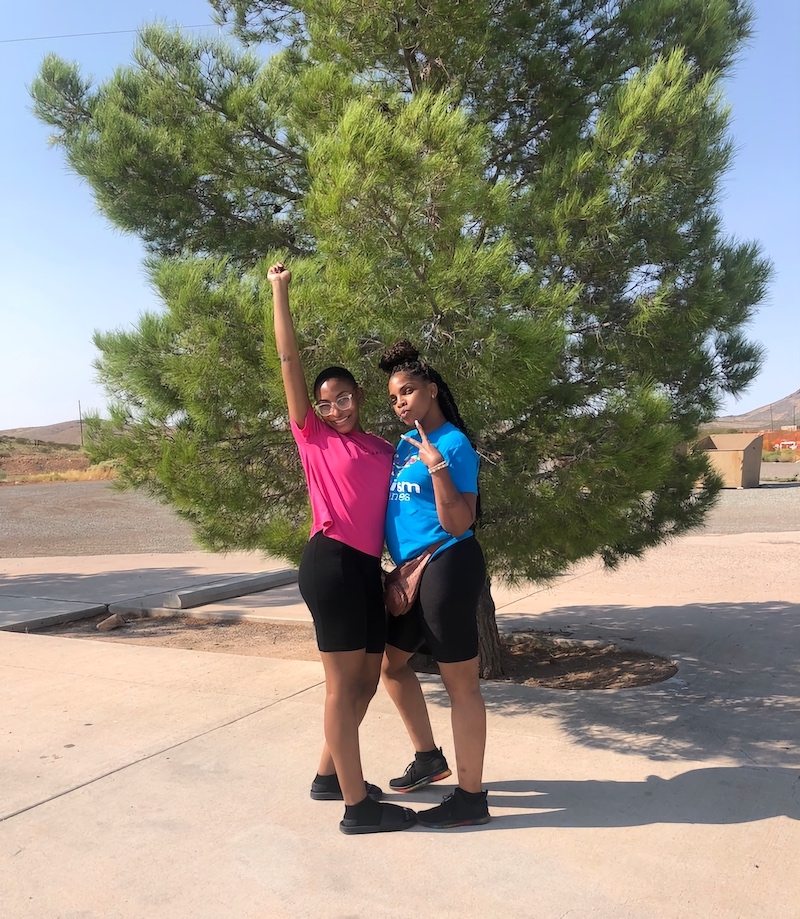
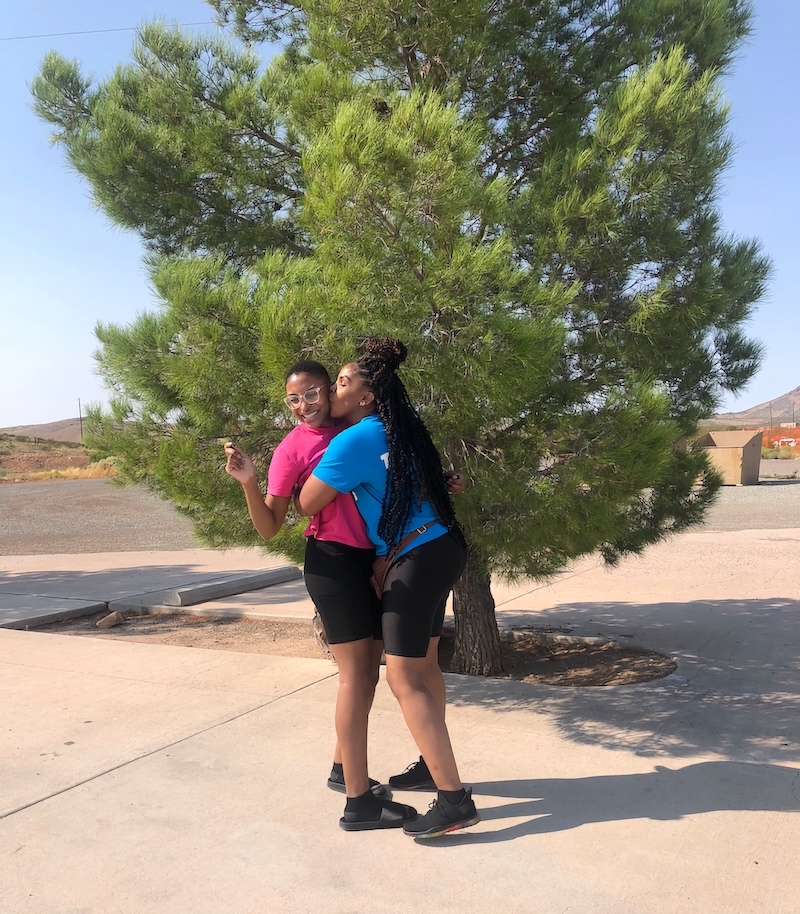
My mom stayed for a few days to help me get some apartment things that I needed then flew back home. I got some rest on Friday and Saturday then it was time to prep for school on Sunday. I added all of my classes, work times, and lab meetings to my calendar. My trusted planner is back to being glued to my hip. My sticky notes are fully stocked. I still do not have a desk but hopefully that will change in the next week. *fingers crossed* Time to get back to business! I am feeling a bit stressed and nervous but I did this before which means I am capable of doing it again.
SO . . . how am I preparing for another fast-paced and intensive semester from home?
Last semester, I found a few things that helped reduce stress and made me feel a bit more balanced. They are all easy and I hope that they can help you too.
- Exercise
The biggest challenge is starting. But, once you are in it, it feels great. Not only does it feel like stress is being released with your sweat, it also adds to your list of accomplishments for the day. Even if you are unable to do anything else, at least you can say that you got in a good workout. It feels awesome to check something off of the list and it motivates you to do more. Exercise does not always have to be exhausting—it can actually be very energizing. I like to work out at the start of my day. Knowing that the remainder of the day will be spent sitting in class, exercising in the morning helps me get into a positive headspace. - Go outdoors
Use any opportunity that you can to go outdoors and get fresh air. This one is pretty simple. Smell the flowers, hear the birds chirping, feel the sun on your skin. This is necessary. Your cozy home cannot provide what nature gives you. Even if it is as simple as going out to get the mail or walking to your car, take a few extra moments to enjoy being outside. - Hang out with your friends
*in a socially distanced way! Zoom calls and facetime is cool and it works if it is your only form of communication. But after being online ALL day, it can sometimes feel like an extra chore. If you can go to a park and spread out, do that! It is nice to see your friends’ faces in person. It’s also a change of scenery which is just as necessary and meaningful for your mental health.
I know that we all hoped things would look better by now and the fact that it is not can really dampen the mood. However, taking note of the little things that make you happy or make you feel even a little better is very important. Now is the time to find joy in the small things.
⋯

Be Prepared for Grad School ⟩
August 12, 2020, by Bethany
Classes Life Hacks
As part of the Bachelor’s-to-Master’s program, my entrance into the Master’s program was unique in that it was also my senior year of undergrad. It was a strange transition, as I was trying to get used to being a Master’s student while holding on to my friends and senior year activities. I struggled with being simultaneously at the top of the school “hierarchy” and the new kid. However, I learned a lot during this past year, and am hoping that if anyone starting this Master’s student life transition resonates with my experience, you can find a new tidbit of information to make the transition easier.
Make New Friends
I struggled with figuring out how to spend my time with people. I wanted to spend every last minute that I could with friends from undergrad, as I knew it was not likely we would live this close to each other again. We had to make the most of our proximity. And yet, it was hard to feel connected to people that I was in new classes with when I was not as open to conversations. It took me a while to realize that these students were going to be with me in the field, and they were people I could learn from and rely on. All this to say: (1) Take the time to have conversations. Whether it be in class (during designated discussion time such as breakout rooms, of course) or not, you can learn about a person even through the course material. One entire class discussed the Therapeutic Use of Self, so we discovered a lot about our own and each other’s personalities. (2) Take the time out of class to hang out. I did not do this one very well, but maybe once a month, whatever you can swing out of your free time, log on to an event. Go meet new people. Start up conversations with people outside of your cohort and classes. Many people would open conversation by asking about the Bachelor’s-to-Master’s program, so I had to learn to use it as a conversation starter, to ask about their own undergraduate experience. We’re all OTs, so we’re all here because we love talking to and helping people.
Another strange factor is our new professors. We meet different OT faculty during these next two years, all with different experiences and expertise. Each student is also paired with a faculty mentor according to their interests. Take advantage of their knowledge base; reach out to them with questions. (3) Use office hours. If you may be unsure of what area of OT you want to go into in the future, as I am, use each practice immersion to further understand your fit for each area. Have conversations with the professors, who are experienced members of their field. It is only during this time that you will have the excuse of class material to start conversations. Even if you can’t use that excuse, faculty are always happy to talk about what they are passionate about. They are also very understanding and can help with any difficulties into the transition to grad school and classes.
Bring a Snack
Three-hour classes feel longer than I care to admit. And although we do get stretch breaks, (4) have food ready! It’s helpful for staying engaged. Be sure that the snack is something you can eat relatively neatly, as you may want to type a quick note on your computer without having to wipe your fingers of Cheeto dust. (Or like some of my creative friends, you can eat Cheetos with chopsticks.) We also have a nice lunch break in between classes. If you’re on HSC, you can go pick up a burrito from the surrounding food trucks, or eat your own homemade lunch. Lunch time is still a great chance for a stretch break, and one good quesadilla, whether off the stove or from the cafeteria across the way, can be a turning point after a tiring class.
Any Time is Usable Time
This is a lesson that I learned riding the shuttle to and from campus, but it’s applicable in more ways than one. It can feel like a long commute to the Health Science Campus from the University Park Campus or from wherever you call home. However, you can make the most of the ride. I was able to journal on the shuttle if I was awake enough, or catch up on another thirty minutes of sleep (which was a more common occurrence). Start on school readings, review slides for the upcoming quiz, or re-read the Harry Potter series. Download a movie on your phone. If you’re driving, take the time to listen to new music on the radio, or get pumped up for the day with some of your favorites. Listen to a new podcast. (5) Make the most of seemingly unusable minutes, even if it is just to relax and take a break. Some of my favorite shuttle rides would be when I ran into a friend on the shuttle, often a friend from UPC that I had not seen in a while, and we would use the shuttle ride to catch up on life. Unusable minutes may take a different form while we’re taking online classes, but that goes into my next point . . .
Balancing Act
All of life is about balance, between work and school and friends and commitments. Adjusting to Master’s classes requires an adjustment of that balance. After completing a Blackboard quiz, make time to go grab dinner with a friend. My first semester, I personally decided to make time to stay in the Trojan Marching Band, blasting summer hits on Cromwell Field. Music was part of my life, and going to practice and playing piccolo was a bright spot in my day. (6) Make time for the things that keep you going. I had never used the calendar app on my phone so much as when I transitioned to grad school. My friend helped me color-code my schedule into different categories, a system I thought I would never use but ended up loving. Seeing the red of a band event or the green of an Intervarsity Christian Fellowship event was a bright spot in my day, and my calendar ensured that I did not miss things that were important to me. For me, this adjustment to online classes changes the balancing act. Now, it means calling a friend during my lunch break or taking time after class to play an instrument.
Lean on Your Support System
Every day, I’d come home to my apartment-mates, and I’d get to hear about how aerospace or linguistics classes were going and share about my own day. They and my other friends made time to let me ramble about adjusting to life and gave me time to just be myself. When I felt stressed, they would drive me out to get mandatory ice cream. When I needed a day out, we’d go to drive-in movie nights and have picnics. When I needed advice, they’d sit me down and tell me what I needed to hear, even when it was hard. You can find support in many forms, whether it’s finding tips on Calvin’s Survival Guide and reaching out to the student ambassadors, or having good, long conversations with friends. (7) Lean on your support system. These days, I go downstairs to do a workout with my mom and rant if I need to. But whether with friends or family, you are not alone in this.
Lastly, (8) be kind to yourself. It is a transition, and everyone will adjust differently. Don’t be harsh on yourself if the transition takes time. Make the most of these opportunities that we have: learn a lot, have fun, and Fight On!
⋯

Student-Work-Life Balance ⟩
July 30, 2020, by Lamoni
Classes Getting Involved Life Hacks
We often hear about the importance of a work-life balance or a student-life and social-life balance. However, we do not talk much about the balance of being a student, being an employee, and being social or engaging in self-care. When I discuss work, I do not mean students that have student jobs (like me). Though that is also something to consider. Being a student with a student job still requires balancing but student jobs understand that your life as a student comes first. These jobs often allow time for studying while at work. They also tend to be more flexible to a student’s schedule. My boss constantly emphasizes self-care and she consistently remind my coworkers and I to adjust our schedules as needed. Shout-out to her; we love you Kim. The flexibility that I see in my job as a student worker typically does not ring true for employment outside of the university. Most employers expect their employees to be committed to a certain schedule and to give their full attention to their work while they are on the clock.
Recently, a few first-year students told me that they would like to become more involved but feel too busy with summer courses at the moment. Some even asked for advice on what they should do because they assumed that their lack of involvement would reflect poorly on them. I want to assure everyone that you are not obligated to join any organizations. Please do not overwhelm yourselves. In fact, many people do not become involved until their spring semester. The goal of the student-organization fair and any emails that you are receiving from organizations are to make you aware of what is out there. Think of them as saying “here are your options, if you so choose” and not “pick me!” If your plate is full or you simply are not interested right now, that is completely fine.
I brought up these concerns with my friend, Daphne, and they spoke about their own experience during their first semester of the master’s program (which we all know is very fast paced). But more than student life which includes student organizations and groups, they told me about how difficult it was to also have a job. After being in class from 8:30AM to 4:30PM, Daphne would go to work. Then after work, they would tend to homework and studying. They said “during summer, it was easy to be overwhelmed with everything going on. There were so many extracurriculars that I was I was interested in, but I did not have time between class and work. I hardly had time for sleep.” Daphne also mentioned feeling alone and unaware of any other students balancing jobs on top of their studies.
Now, with campus being closed due to COVID-19 and many student jobs being unavailable, I believe some students have picked up work outside of school. Additionally, I know that some students have children or are responsible for financially contributing to their household – maybe more so because of the pandemic. I have heard from some of my peers that their families are requiring more financial assistance from them. It is difficult to balance student-life, work-life, and life-life. Add in COVID-19 and it can become an even greater struggle.
So, what do you do?
If you can say “no,” say it.
I know that some responsibilities are non-negotiable. However, not everything requires your time. When someone asks something of you, the answer “no” is a viable option. For the people that have a hard time saying no, there are several ways to say it ~nicely~
Special shoutout to @BRIARAMs on twitter for creating a thread. Here are some of her suggestions.
“I appreciate you for considering me, but this is not for me at the moment.”
“I am unsure, may we revisit this another time?”
“Thank you so much for thinking of me, but I have committed to something else.”
“Unfortunately, now is not a good time.”
I used to have difficulty telling people no but there are only so many hours in a day. Plus, I cannot get the job done effectively If I am tired or have to tend to 100 things at once. Learning how to say no to some things allows you to say yes to what is important to you.
Reduce your involvement
Sometimes we get excited and push ourselves to become more involved than necessary. Similar to saying no, reducing your involvement helps to take some things off of your plate. As mentioned, many of you want to become more involved but you are concerned about the commitment. If there is something that you absolutely want to be a part of, become a member. But remember—That does not mean you have to be a board member. You do not have to show up to every meeting. You do not have to take on additional roles. Do what you can and nothing more.
When assistance is offered, take it
During these uncertain times, there are programs, loans, and grants to alleviate stress (e.g., CARES Act Federal Grant, housing/rent assistance, business loans). Take advantage of those modes of assistance. Their sole purpose is to offer help so do not feel bad. Apply for what you need. If you need them all, apply for them all.
Ask for help
When help is offered, we are more likely to take it than to directly ask for it. A lot of people struggle with asking for help. But honestly, there is no harm in it. The worst thing that can happen is being told no. Do you foresee yourself needing an extension on your paper? Ask for it. Ask your boss if you can do readings at work when things are moving slow. Many people are more understanding than we think. If you explain your situation, they may be willing to help you out.
I wish life was as simple as saying – just be a student and fully commit to that. But in reality, there are bills, there are student loans, there are car payments. There are responsibilities outside of being a student. However, there are a few things that you can do to make it all feel a bit more manageable. I hope these tips offer some relief.
⋯

Discovering Two New Occupations in the Midst of Challenges ⟩
July 29, 2020, by Nmachi
Life Hacks Living in LA
About two weeks ago, my sister and I were doing our usual quarantine morning workout routine: high intensity interval training (HIIT), abs, and lower body focus. Since we had been frequently exercising indoors, we decided to take a walk around the neighborhood to get some fresh air after the workout. Once we walked out the front door, we instantly knew that we made a great decision. The sun was shining, the air was cool, and the atmosphere was very peaceful.
After walking twice around while listening to music, we began talking about how much we needed that walk. It was something that was very simple but ended up lifting our moods and altering the trajectory of our day. We became more and more engulfed in our positive thoughts on the walk that we came up with the most genius idea of all time: watching a sunrise at the beach! It dawned on me that I had never been to the beach in the early morning to watch a sunrise. Because I’ve lived in Long Beach, CA my whole life, I tend to take my proximity to beaches for granted. Going on a morning beach adventure was the perfect way to take advantage of the benefits of living in SoCal!
Something to note is that my family and I are not the type of people to plan things on a whim. The fact that my sister and I thought of doing something new and actually did it the following morning was a big deal for us. While at the beach, we laid out on the sand, read books, and watched the changing beauty in the sky. It was magical but so simple. Since we arrived very early in the morning, there were barely any people around. This allowed us to truly relax and listen to the sounds of the ocean without distraction.
Going to the beach was the activity we needed in order to get the adventurous ball rolling, if you will. Since we had such a great time being outdoors, we brainstormed other activities to do that would require us to visit and explore different locations. My sister remembered that a family friend had recently gone hiking, so we decided to try out the same trail she went on. It was my first real experience hiking, and I loved it! We felt amazing afterwards and made plans to try out another hike near my other sister’s apartment. This hike was a bit more challenging but equally rewarding. The two hiking trips were amazing and had incredible views!

Views of the Pacific Ocean: Del Cerro Park | Rancho Palos Verdes, CA
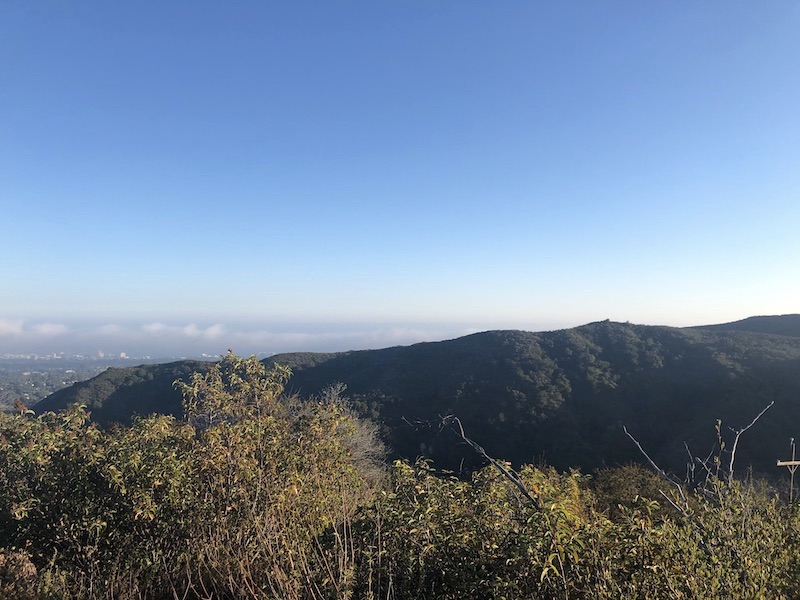
Sullivan Canyon Trail | Los Angeles, CA
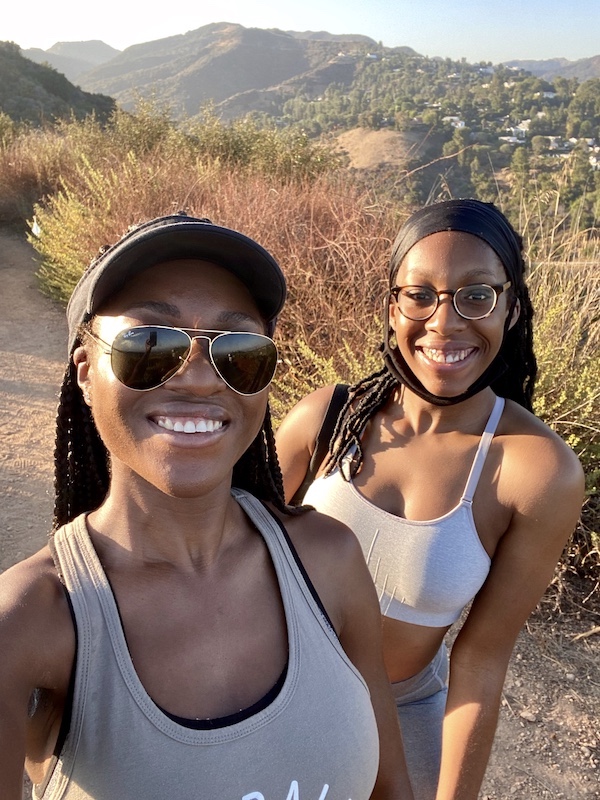
Bonding with my sister and fam (not pictured)
The main lesson that I learned from these experiences is that it is KEY to get out of the house, especially during this stressful time (while always wearing a mask and practicing social distancing). It’s safe to say that COVID brought many challenges and stressors to people’s lives. Personally, I have been dealing with the struggles of not being able to physically be on campus this upcoming semester. Having to do all my classes and hang outs with friends virtually has its pros and cons, and I know that many other people are going through similar conflicts. Despite having these negative feelings, I pushed myself to get outside of my comfort zone. Through this, I was able to discover two brand new occupations that I will begin to incorporate into my daily life from now on!
⋯

Childhood Occupations In Summer ⟩
July 20, 2020, by Bethany
Life Hacks
For part of the summer, my brother and I went to stay with our cousins. It was the perfect time to go. Our parents wanted to remodel the kitchen, which would frustrate my brother and I, as we are stuck taking online classes from home, and my aunt and uncle needed to entertain their three kids who were also stuck at home. So we moved to Hawaii for six weeks, continuing online classes, which now started at 6am instead of 9am for me, and spending our afternoons with the cousins.
Having not been out of the house for a while, I loved observing the occupations that people chose during an encouraged stay-at-home time. I was in a unique position to be able to see others’ occupations, not just my family’s. I especially loved the fact that I had an excuse to engage once again in childhood occupations. It’s harder to find reasons to have random water balloon fights when all of your friends are over twenty and everyone is being encouraged to stay away from one another. But now under the same roof with three younger cousins, I had the chance to observe, relearn, and engage in some of the most exciting childhood occupations.
One of my cousins fell in love with baking. He had already loved the culinary arts before the safer at home order, and then as his free time expanded, so did his passion for baking. My brother and I were a new audience to wow with the recipes he had perfected for his own family, and we helped him concoct new ways to get creative, too. The second we arrived, he showed us his first creation: a red velvet cake decorated with green lemon-flavored icing. The red was for my love for USC, and the green for my brother’s school. The cake was gone all too soon, but my cousin was quick to create an entire baking schedule with things we had to try while we were here, including a double-layer carrot cake. My brother and I helped him come up with ways to make use of extra pie crust, like making cinnamon-roll-like creations topped with blueberry compote.

A double-layer carrot cake
The youngest cousins showed me the garden. Many different potted plants stood out in the front of their house. She took care to water the garden daily and to check to see if things were growing. In contrast, the oldest cousin’s most common occupations were playing video games with my brother and self-learning riffs on guitar or piano to famous songs like “Piano Man.” And although the cousins engaged in occupations I was used to, such as going to walk the dog and watching TV shows, my favorite occupations to witness and join in on were self-made entertainment.
The cousins could entertain themselves, and me, by turning anything into a game. For example, my brother started showing them a magic trick, having them pick a card from the deck and finding it again. Once he got tired of that, somehow, the game instead turned into “randomly guess the card.” The entire 5-cousin group would randomly shout cards (“Ace of spades!”), someone would turn the next one in the deck over, and you would either hear shouts of disbelief and excitement, groans of frustration if the number was only one off, or more commonly small sighs and next guesses. The game took up at least ten minutes. Ten minutes of random card guessing, and I had fun with it. I guess the anticipation in the occupation and the people with whom I was participating made the occupation increasingly engaging.
On a socially-distanced beach trip, I stayed in the shallow water with the younger cousins, jumping waves. Then the youngest dived down and grabbed a rock. We spent the next twenty minutes using the rock as if it were a pool dive toy, where I’d throw it and she’d get it, over and over again. That day, we also dug a giant hole. And then right after, we filled it in before leaving to make sure no one would fall into it. But I was struck by the short-lived nature of these occupations, how it seemed so necessary and important to frantically dig water out of the hole as the waves rolled in so that the hole would not fill up, but then we filled it up ourselves an hour later. And yet, these became some of the most fun moments.
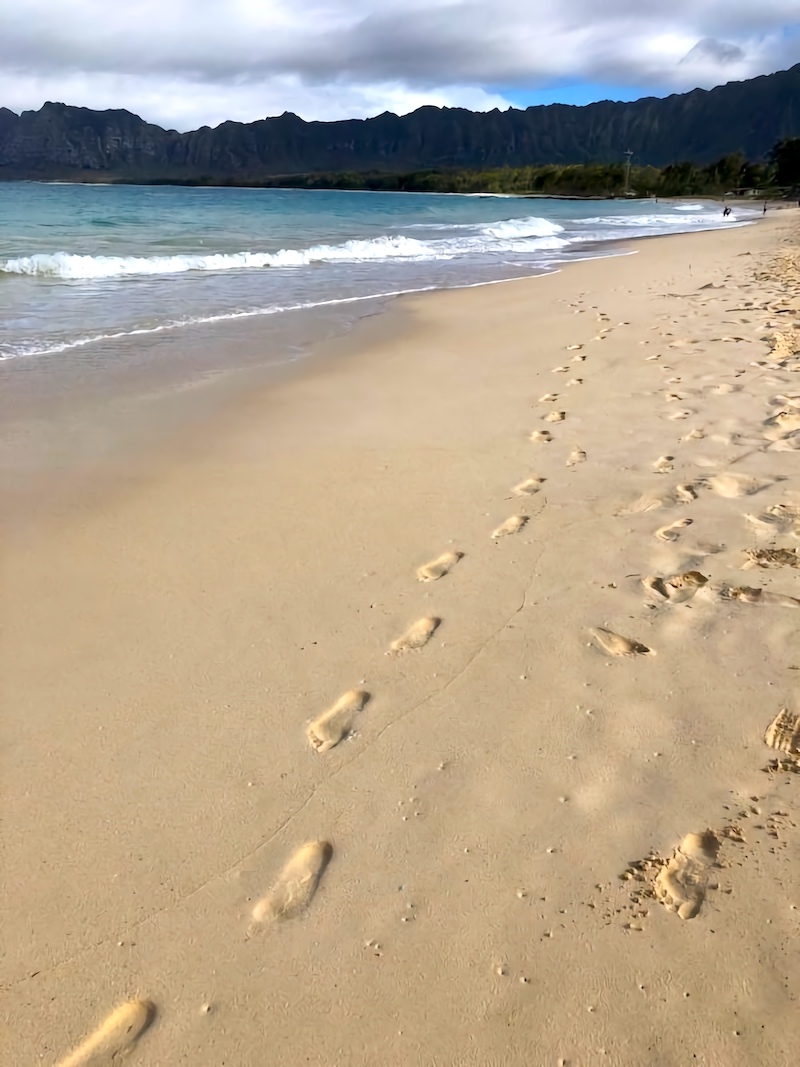
Beach walks
It’s the small daily activities of entertainment like making toys act out a play, trying to mimic how Han Solo runs, or trying to bounce a ping pong ball into a cup that become memorable, silly moments. It’s not just the activity, but the context, the place, the people, and the purpose, that make them meaningful occupations. In one of the books I was able to pick up this summer, Liturgy of the Ordinary, by Tish Warren (2016), I read that “Children never tire of beauty and pleasure. They embrace enjoyment with abandon. They don’t feel guilty about taking time to search for feathers, invent a game, or enjoy a treat” (p. 132). And getting to participate in these activities with my cousins has helped me begin to rediscover my own wonder with the world.
Reference
Warren, T. H. (2016). Liturgy of the ordinary: Sacred practices in everyday life. InterVarsity Press.
⋯





